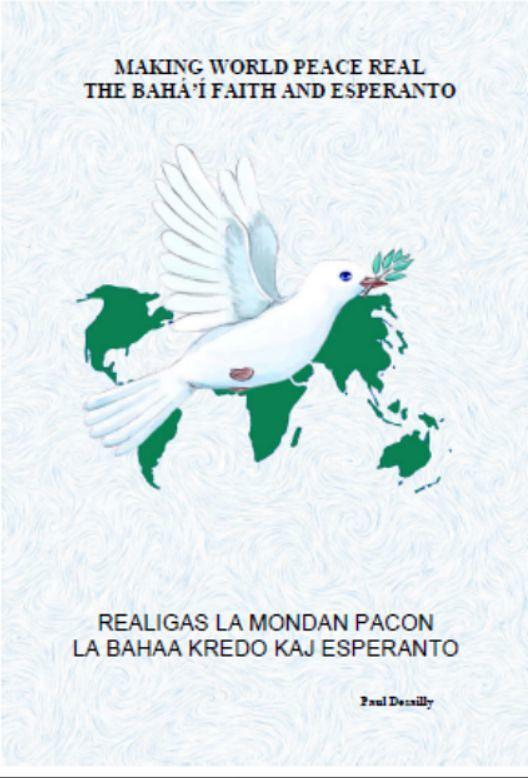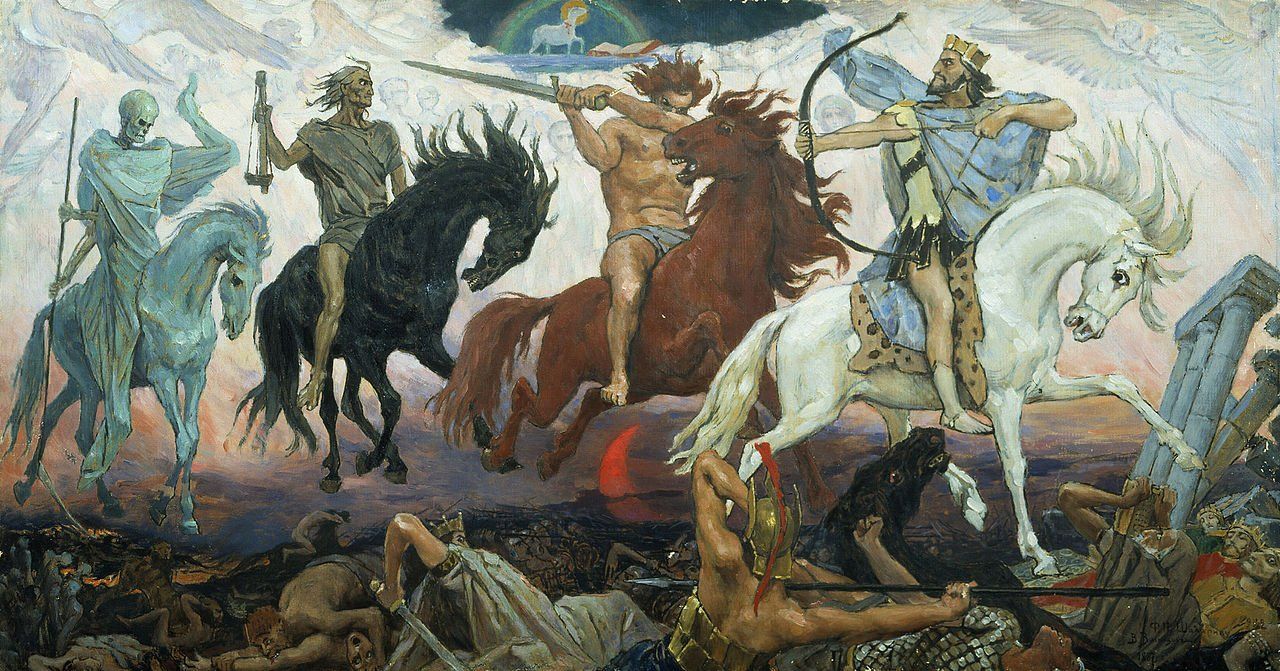A CHALLENGE AND AN OPPORTUNITY
Professor Renato Corsetti
Is Dr. Zamenhof really dead? And what about Churchill?
Certainly, they are both deceased, but their ideas continue to bear fruit. Zamenhof’s ideas may be summarised as equality for all peoples. The ideas of Churchill align with the free market economy. This article addresses obstacles faced by Esperanto in free market economies. Not addressed are Hitleresque persecutions of what he depicted as “the dangerous language”. Here I examine obstacles deliberately put in the way of a language and an idea fundamentally at odds with a free marketeer’s world order. Said obstacles constitute in the main a hidden agenda in support of an alternative project. My central thesis posits that obstacles put in Esperanto’s path by France and subsequently by the English-speaking world harmed Esperanto much more than abominable persecutions perpetrated by overly nationalistic governments.
1. The 19th century: Racist ideas and imperialism
The 19th century spawned and witnessed widespread dissemination in continental Europe of the concept of the nation state and gave birth to Esperanto too. The notion of nation building influenced everyone in that era, including people like Zamenhof, who nevertheless favoured its antithesis, that is, a shattering of "stubborn barriers between divided peoples". Zamenhof was one of those people who did manage to eschew the ideological prevalence of his time! A recent article by an Icelandic researcher even presents Esperanto as one of the movements opposing 19th century nationalism. Note i: Anationalism and the Search for a Universal Language. Esperantism and the European Avant-Garde. Decentring the Avant-Garde, ed. by Per Bäckström and Benedikt Hjartarson. Amsterdam, New York: Rodopi, 2014, pp. 267–303 In that same period in other countries, as with continental Europe and Britain, and to some extent in the United States, the general public’s mindset was developing a completely different world view in which the notion of fraternity gave way to the idea that whites are destined to rule the world. Those racist ideas were presented so openly that it is now difficult to accept that such was the real world, a situation entirely at odds with Esperantism’s verities. It was obviously imperialism, the last stage of capitalism as characterised by Lenin.
As to Britain: The 19th century is seen as the apogee of the British empire. Nothing defines the era’s ethos more than the assertions of its most influential public figures. Let’s start with Cecil Rhodes whose overarching influence through much of the second half of the 19th century was such that Rhodesia was named after him. A biographer has stated: “Rhodes envisioned a secret elite of Anglo Saxons destined like Plato’s philosophers to put the whole world in order, to hold authority over it and to dominate other peoples for their own good. These dedicated young people were to be drawn from Britain, North America and Germany because Rhodes considered those lands not only truly white but destined to boot to rule the world.” Rhodes was not alone in this. The most highly regarded artist in Britain at that time, John Ruskin, said in his inaugural speech at Oxford: “There is now a destiny possible for us, the highest ever placed before a nation that we can accept or reject. We are still an undegenerated race, a race mixed with the purest northern blood ... England ... must found colonies as widely as possible ...” Note ii: Richard Symonds, Oxford and the Empire in M G Brock and M C Curthoys (eds), The History of the University of Oxford, vol VII, Nineteenth-Century Oxford part 2, Oxford University Press, (2000), pp. 689-716, specifically. p. 691. Clearly, the plans of Rhodes, of the UK government and of a multitude of British protagonists held that English alone is the language of empire. Nothing else was conceivable. Dreams of equality like those connected with Esperanto found no place at all in the racist-imperialist attitude of the era in which Esperanto was born. In that period of course such an attitude prevailed way beyond Britain. We must at a minimum examine French imperialist notions.
As to France we have an exact formal date for the birth of the empire after the revolution: It is May 18, 1804 when Napoleon was declared emperor of the French. The consequences of this empire are well known. Less well known are the cultural and linguistic consequences. The French, like all imperialists, sought to spread French culture and the French language. Facilitating this was implementation of the school system in line with the principles of the revolution. For example, by decree of July 4th, 1810 all communities in the conquered Slavic territories had to establish a school for boys and each district was obliged to have a school for girls. Envisaged for various middle schools and high schools was tuition solely in French. Many wealthy Illyrians were sent to universities in France. In the second half of the century during the so-called Second Empire the colonialism of France intensified. The colonial French empire whose area encompassed less than 300,000 square kilometres in 1851, acquired an area exceeding 1,000,000 square kilometres by 1870. Naturally, the French more rigorously applied their concepts in the colonies. French became the language compulsorily taught in all schools in France’s colonies, whereas the English did not act in that way but trusted rather in the inherent strength of the English language. French was in any case taught as a priority to the children of the local elites and tribal chiefs. Self-evidently at the root lay racist ideas flourishing in France in the second half of the 19th century. Arthur de Gobineau (1816-1882) promulgated in 1855 his racist Essay on the Inequality of the Human Races in which the Indo European race features as the ancestor of all the ruling classes of Europe, and especially of the French nobility (to which he belonged). Note iii: https://en.wikipedia.org/wiki/Arthur_de_Gobineau We see in that period in the United States a special situation. Such were the notions of white supremacists vis-a-vis relations with blacks recently freed from slavery that proofs from literature abound, but the constructing of the American empire per se in the late 19th century was only in its infancy and so that country forms little part of this essay.
Esperanto was born in Eastern Europe and soon spread from there to Western Europe. In Britain’s case W. T. Stead played a vital role. Stead was a nonconformist who supported many causes. His articles condemning prostitution in Britain, among other issues, led to a term in prison. Similarly, in France, acceptance of Esperanto resulted from the activism of individuals not influenced by a general worldview opposed to Esperanto.
2. The League of Nations – the first serious persecution of Esperanto
In the early twentieth century until the outbreak of World War 1 Esperanto enjoyed a real purple patch which is well documented. See Wikipedia’s accounts of the first world congress of Esperanto in Boulogne-Sur-Mer in 1905, of subsequent congresses in Britain and in the United States in 1910 and of the establishing of Esperanto groups throughout Europe and in various parts of the world. After the Great War’s devastating interruption Esperanto activities took off once again, but then unexpectedly the Esperanto movement received its first serious setback. This time France was the persecutor. At the end of World War I, in conjunction with the Versailles peace conference in 1919-1920, the League of Nations was founded, officially on June 28, 1919. It was the first version of an international organization tasked with resolving international issues and avoiding wars. Already in the following year, on December 19, 1920, 11 delegations presented a motion for a resolution on Esperanto. Propelling the proposal was the legal adviser to the Persian delegation, the subsequently renowned Esperantist, Edmond Privat (pronounced: Pree-vah). The reaction of the French delegate however was very unfavourable. Consider for example these lines alone: "There is already an international language: French, universally taught everywhere in the world of thought." This French delegate was an important politician in his country, a former foreign minister, who, like the minister of public education Léon Bérard, feared competition from Esperanto in the role of the international language occupied at that time by the language of Voltaire. The minister even banned the teaching of Esperanto in buildings belonging to French schools. They obviously had no concept that the role of French was already threatened by English. In any case, the proposal was rejected at the League’s General Conference of the following year.
Despite the favourable report of its Deputy Secretary-General Inazo Nitobe, who attended the 1921 Esperanto World Congress in Prague, and despite support from 13 delegations: South Africa, Romania, Persia, Belgium, Czechoslovakia, Colombia, China, Finland, Albania, Japan, Venezuela, India and Poland (with some conditions), as a result of continued opposition from France, the report was accepted but the key part, which was a recommendation for the teaching of Esperanto in the schools of the member states, was delegated to the International Committee for Intellectual Cooperation. There the French representative Reynald stated that he had been instructed to reject the proposal, and that ended the debate. In a sense, the French managed to block Esperanto at its most hopeful moment, which was never again realized as nationalist and Nazi governments came to the fore in Europe, the Second World War and the Cold War ensued, and as English went from strength to strength. Moreover, the League of Nations was never highly effective, the United States was never a member of it, and the Versailles peace treaty was so bad that it became a catalyst for World War II.
3. Other events in the same historic period in English-speaking countries
If the French failed to notice that English was occupying positions in the arena of international languages, the English pushed on in sync with their old “imperial” ideas even after the First World War. When I say "the English" this must be understood as the ruling English elite and the conservative element of public opinion.
In the twentieth century the purely racist considerations of the previous century had been abandoned but not the ideas of the supremacy of English civilisation. These notions of superiority were held by C. K. Ogden. In 1925 he produced Basic English, fully described in a book published in 1930. His plan was to spread the knowledge of the English language to everyone in an easier way. Ogden was convinced that the world needed to gradually eradicate minority languages and use as much as possible only one, English in either a simple or complete form. The issue was widely known in Britain and praised as a vehicle for absorbing English by those unfortunates not in possession of it from birth. A widely known 1933 book on this is a science fiction work on history up to the year 2016 titled The Shape of Things to Come by H. G. Wells. In this work Basic English is the inter-language of the future world, a world in which after long struggles a global authoritarian government manages to unite humanity and to force everyone to learn it as a second language. George Orwell was one of the supporters of Basic English until 1945, at which time he became critical of all international languages. But what impresses most is that the Basic English project received special attention, even during World War II, from the British government, which obviously saw in it a tool for spreading the English language and culture.
In 1943 Winston Churchill delivered a famous speech at Harvard University on the occasion of receiving there an honorary degree. This speech is often quoted because of the following excerpt: “Let us go forward as with other matters and other measures similar in aim and effect - let us go forward in malice to none and good will to all. Such plans offer far better prizes than taking away other people's provinces or lands or grinding them down in exploitation. The empires of the future are the empires of the mind… Here you have a plan. There are others, but here you have a very carefully wrought plan for an international language….”
In my view that plan sounds like the death knell for the Esperanto movement, without the need to persecute any Esperantists but by simply overpowering them by means of a plan which is directly at odds with theirs and supported by the governmental power of Britain and the United States. My Esperanto friends often voice the view that “we are not enemies of English.” They are right but English is the enemy of Esperanto if it aims to take over Esperanto’s role as a world inter-language. Churchill made that obvious in his speech! In the meantime, the British Council, which is the official body for overseeing English abroad, also entered the fray. In 1934 officials from the British Foreign Office set up the British Committee for Relations with Other Countries. The name was shortened in 1936 to the British Council.
4. In the second half of the 20th century the history of what transpired in this period is well known and well documented in Robert Phillipson's book, Linguistic Imperialism.
In the last 25 years this book has been criticized from several angles, but no one denies the imperialist actions and facts presented. They are simply interpreted from another point of view, explaining that it was not the English-speaking countries that forced others to learn English, but it was essentially a free choice of the other countries themselves for their own advantage. Nothing fundamentally new from that theoretical point of view has taken place since the year 1950, but only a practical realization of the ideas already expressed.
But as depicted in my introduction, ongoing actions for English and against the idea of Esperanto have evidently been applied in this matter. Other than countries in the Communist Bloc all others were, as a Mexican president jokingly said about Mexico, "far from God and close to the United States." I would add that with very few exceptions the rulers of the other countries actively cooperated except for the non-cooperation of the French, who were still trying to promote French as an international language.
The result of this action is already clear for all to see. English is taught all over the world and to some degree has already assumed the role of the interlanguage envisaged by Zamenhof for Esperanto. The expression now in English is “lingua franca”. In this field the work of the United Nations has never attained the status of that at the League of Nations nor have language rights ever been accepted as human rights, notwithstanding its citing at Article 2 in the UN’s 1948 Declaration of Human Rights. There is only one study completed in response to a request of the UN concerning inter alia language discrimination. The study acknowledges that discriminations exist, but no practical steps have ensued.
Ergo English-speaking countries never resorted to their UN veto power to prevent a discussion about Esperanto, because it never even reached the agenda. In the final analysis were the persecutions of Hitler and Stalin more dangerous to the idea of an international, neutral, planned language than Churchill’s promulgating of an alternative project that persecuted no one?
5. A realistic conclusion
So far, I’ve shown in regard to installing globally an interlanguage between people of different language groups that the Esperanto project has failed and the project "English as a second language for all" is a success. The Esperanto movement still exists today and works well for advancing Esperanto, but in the eyes of the public it is a shadow of its former self as at the beginning of the last century. "Isn't Esperanto already dead?" ask some of the people who once had favoured it. Many others never ask because they’ve never heard of it.
Esperanto today is spread worldwide, though thinly. It remains a marginal phenomenon. It has adapted to the new online communication capabilities and has come off life-support due to the internet, which gives individuals the power to communicate. Certainly, the idea of a just and neutral solution to the language debacle remains a beautiful ideal, which, however, attracts few supporters in today's world. Most of the world thinks unfortunately that it is better to learn the language of the great powerful man of the moment.
But it’s not the end of history yet! Our present crises and Corona virus pandemic demonstrate to everyone that the world is one and that peace and cooperation rather than war and violence solve shared problems such as global warming, global epidemics, a billion people in penury, insufficient health services and the list continues. In a post Corona-virus reformed world, a less violent and more united planet will arise. In it the role of Esperanto as a language of peace and cooperation, and not favouring this or that popular culture, will have such a bright future that Zamenhof's vision of equality and cooperation will come true for all humanity.











